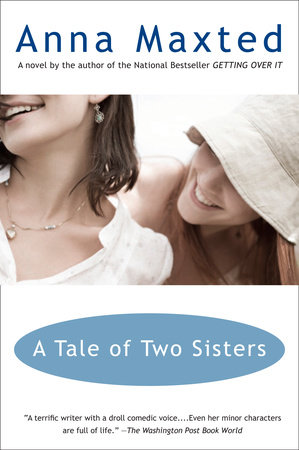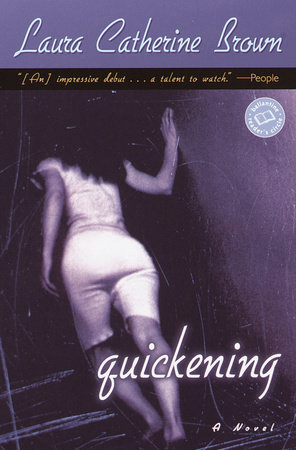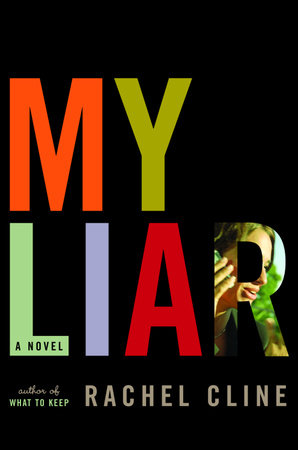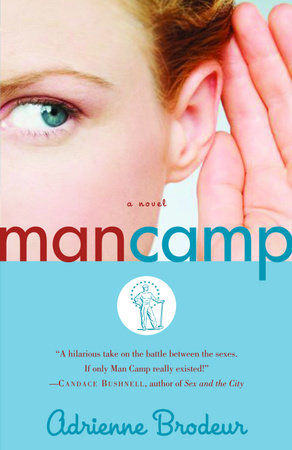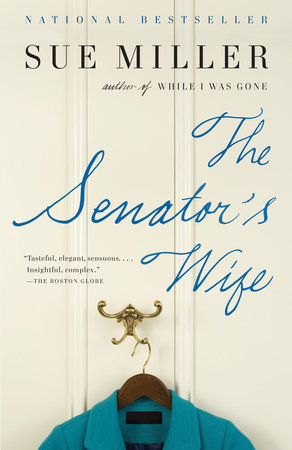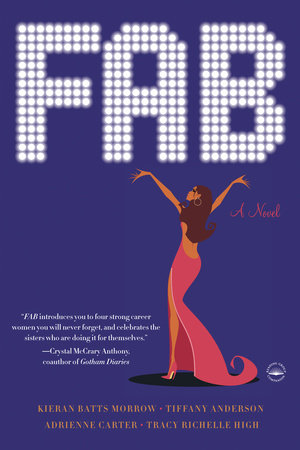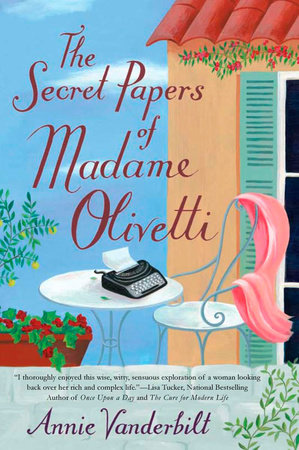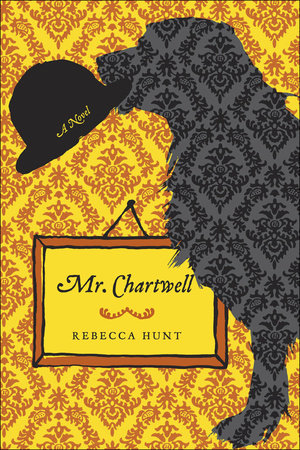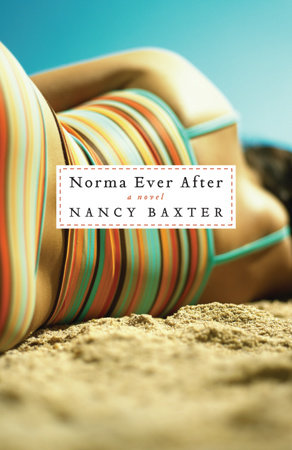Q: How much of THE DIARY OF AN AMERICAN AU-PAIR is based upon your own experiences as an au-pair? What was one of your most challenging experiences as an au-pair? What was one of your favorite experiences?
A: The story is all based on my own experience as an au pair. To tell the emotional truth, though, I had to add fictional incidents and change certain characters’ personalities.
My greatest challenge as an au pair was to keep my psyche intact. To be trapped in a foreign house for 24 hours a day—with a hostile stranger—asks a lot of a fragile person’s strength. I was especially fragile then, since I, like Melissa, had just been laid off from my first job. I had broken off my “safe” engagement. I thought I could escape my failures and explore abandoned dreams. I really did imagine luncheons on the lawn a la Henry James. But Henry James had never made me wonder who served those lunches? I never knew how servants were treated, and I hated finding out.
There were compensations. The best was finding a friend. He was nine years old. Like me, he was always being yelled at. Both of us were daydreamers who took half an hour to put on a sock. I have probably never valued or enjoyed a friend as much as I valued and enjoyed that nine-year-old.
Q: Not to pry, but a touching romance develops throughout the course of your novel—was this also based on your au-pair experience?
A: The love affair with the character called Simon didn’t materialize as a love affair in real life. person on whom Simon was based had another girlfriend, and our relationship remained a one-sided crush—except for one thrilling fact: he really did blurt out, “I can’t marry you.” Ahah! He’d been thinking about it. I don’t think I’ve ever been as elated as I was when he said he couldn’t marry me. I went home and really did fall in love.
Q: Do you think this novel is a realistic portrayal of an American au-pair’s experience working for a British family?
A: There aren’t that many families like the Haig-Ereildouns. Most American au pairs would never find themselves in manor houses like Sir Chester and Lady Chipchase’s or castles in the Hebrides or farmhouses in Scotland or even such shabby London townhouses. You probably wouldn’t be in a family with a nanny who’d worked for them for forty years. You also would be unlikely to land in a family that made you share bathwater. This family, their houses, their habits, and the characters they knew, were more storybook than you’d probably get if you became an au pair for a banker.
Q: In your novel, you poke fun at a lot of aspects of British culture. How has this book been received in Great Britain?
A: From what I hear, the English like it! The Observer said, “In the most funny and gleeful way, this is a work of comparative anthropology.” I’m told that on the BBC, a famous author raved on for ten minutes: “I loved this book! Found myself smiling all the way through.” One Times review had a slight touch of hurt feelings, but liked the character (Melissa) enough to recommend the book. One English acquaintance became a friend, because of this book. She just couldn’t contain her delight. “You’ve really hit it on the head!”
Q: You include a lot of descriptions and references to food in your novel (that makes your readers very hungry!). How did you learn so much about the food in Great Britain and why did you choose to make food such a prominent feature of this novel?
A: One of my duties was to cook. One of my pleasures was to eat. The au pair has a lonely life—especially in a Scottish farmhouse. In London, I did take cooking classes—at the Cordon Bleu. The techniques were archaic. The teaching chef really did recommend boiling the vegetables as long as possible, so that their flavors wouldn’t interfere with the taste of the sauce. In the fancier houses, the cooking was highly sophisticated. What they say about English food may be true of the average family’s food, but it’s not true of aristocratic kitchens. There are class differences in food, as well as in manners and dinner table conversation.
Q: What is one of your favorite British dishes?
A: Kedgeree. Smoky mousse. Wild pheasant. But most of all, sweets. Fiction and fact get blurred in my mind, and I’m afraid that if I’m honest, Mrs. West didn’t really make the lemon bars described, and Granny Aitchee didn’t really bake shortbread. My friend Ardsley, in Australia, makes those lemon bars. My friend Ron’s mother, in Canada, baked the mostly-butter shortbread. But Morag, in the castle in the Hebrides, really did serve mushrooms on toast as dessert.
Q: The au-pair in your novel, Melissa, gains a considerable amount of weight during her time in Great Britain, in part due to all of the marvelous food, but also because of her unrestrained eating habits. Is this an allusion to America’s unhealthy food portions and the large percentage of people that are overweight in our country?
A: No! As Melissa learns in the story, America is a whole lot of places. I live in San Francisco. You hardly ever see a fat person here. Au contraire. Melissa always tussled with chubbiness, or what she thought of as chubbiness. As an au pair, she saw her worst dreads come true. At one point she weighed ten stone! That’s exactly what Princess Diana weighed, according to a certain story in Paris Match. One Amazon reader said she thought The Diary of an American Au Pair was about eating disorders! This made me laugh. But it is about what a downcast person with no hope on the horizon might do to put at least a little pleasure into life. Eating was also the only rebellion Melissa was willing to try. By closet-eating, Nanny was also asserting her will the only way she dared: a self-defeating self-assertion.
Q: Before you were a novelist, you created a successful US National Public Radio program, Tell Me a Story, in which you would go around the world recording famous writers reading their stories. How did you come up with this idea for a radio program and how did you get it started?
A: When I thought of this series, I never imagined myself going around the world to record famous writers. That did happen, though. (Amazing.) What happened was, I was cooking soup on a rainy night, twisting the radio dial to find some company. Nothing pleased me except a Midwestern voice on NPR, reading Chapter 35 of a novel. I’d missed the first 34 chapters and would no doubt miss the rest. “What they should have is short stories on the radio.” (This was just slightly before “Selected Shorts,” from Symphony Space, came into existence.) Chopping onions, I chastised NPR for not doing short stories. They should do it! Then I thought, I should do it. I’d had some experience producing radio. “It would be simple!” I thought. (Ho. It wasn’t.) But luckily I thought it would be, so—eventually—I set about it. I thought having the authors themselves read would be special. What would Raymond Carver sound like? V. S. Pritchett? John Updike? Eudora Welty? Amazingly, I found out. So did a bunch of listeners. Raymond Carver did the pilot. After that, everyone else wanted to be part of it.
Q: Who were some of your favorite and/or most memorable guests on your radio series?
A: Ah. Start with Ray Carver. Getting to know the real person, slightly bumbling and excitingly irreverant, made me read him with more intensity. His writing makes me know I’m not alone in this world: My deepest aches have been ached by another. V. S. Pritchett takes a different route to go heart-to-heart—surprising you by hitting the spot. These two writers’ styles are opposite. Ray’s spare, VSP’s fancy. Yet they were each other’s great fans. Both, by the way, loved Chekhov the most. Eudora Welty felt the same way about Chekhov. (“Victor Pritchett is the best. Well, not THE best. Chekhov is the best.”) Another thing she said was that the most important thing about a work of writing is “authenticity.” And another thing she said was, that the author’s greatest accomplishment is “empathy.”
Meeting the greatest writers of the twentieth century—somewhat in depth, since I studied for each encounter and then studied them more, ever after—led me to examine what matters to me most about reading. And therefore, about writing.
Q: Where did you get the inspiration to write this novel and what was the most challenging part of writing it?
A: The experience I had as an au pair had a point. I wanted to figure out, and tell someone, how a few months could have led me from being a timid, ineffectual, and often too-good person into being someone with courage enough to be myself. Things like this must happen to other people (being a soldier, marrying the wrong person —or being told you have only a few months to live). The challenge was to state the truth in a way somebody would understand—in a way that might even make him understand himself better.
Q: Which authors have been most influential in your own writing? What contemporary authors’ work do you feel is most akin to your own writing?
A: Certain writers I met doing Tell Me A Story, gave me permission to do what I wanted to do all along. John Updike, especially, gave me permission to take writing seriously, every single day—by stating the opinion that this devotedness was a requirement. He also said he felt he was “closest to God” when he was writing. He said, “You’re singing praises. You’re describing the world, as it is. And even if the passages turn out sordid or depressing, there’s something holy about the truth.” In an article where various writers were asked the meaning of life, he said, “Paying attention.” Describing makes you pay attention. It is a kind of worship for life. He articulated not only some of my own desires but some of my own love. When I wonder about the worth of what I’m doing, I replay his words in my head.
As for this book, William Maxwell had the most influence. He told me that there came a time when he felt “deeply ashamed of all the inventions in his fiction. Because real life has characters enough, and events enough, and they happen in an order.” From the moment he felt this, he tried to keep strictly to the truth in his writing. He invented only when it was necessary, to expedite the essence of a story. And when he did invent, he always let his readers know. Somehow, I liked the part about real life having characters enough, and events, and they happened in an order. I felt the same way about my own real life. In this book, I tried to do what he said. When I began to define, for myself, the essence of what had happened, sometimes I realized that some pertinent events, if told literally, would take us out of the time span of the story. There were certain characters who were almost icons to a group (servants, say); and to make one of them sympathetic, I had to change her personality and invent amusing things for her to say and do. Unlike William Maxwell, I didn’t inform the reader when I was inventing.






